Pioneering surgeons recall first triple transplant operation
- Published
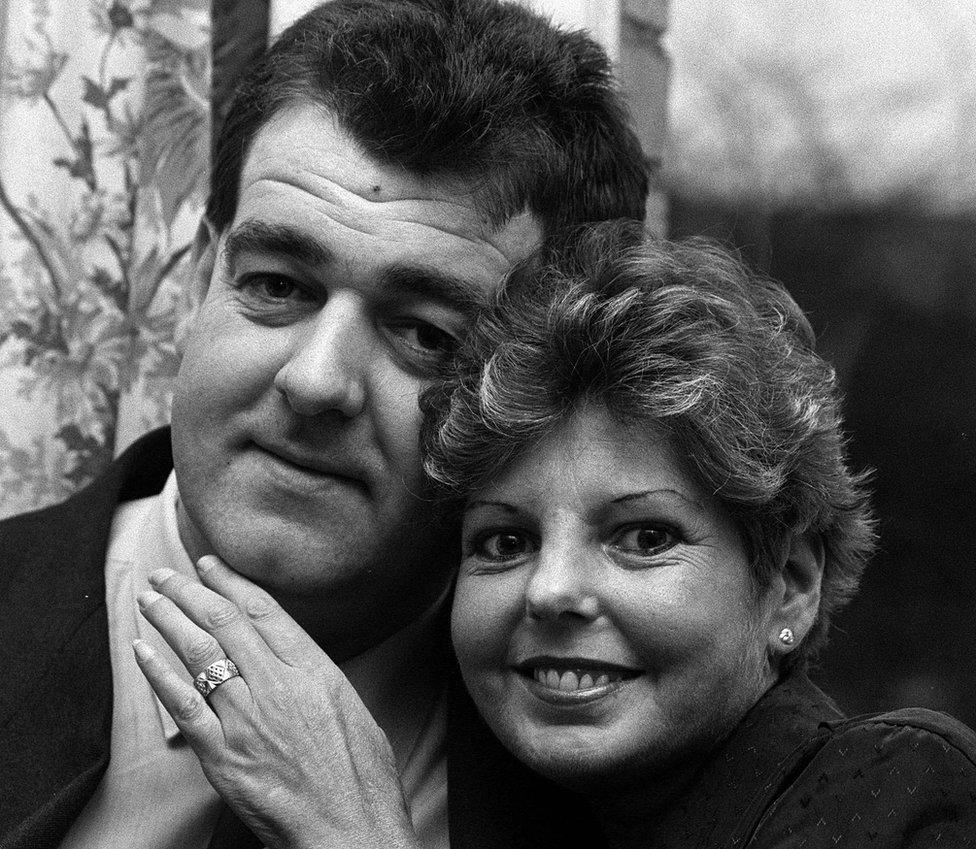
Davina Thompson pictured with her husband Peter about a month after her operation
Thirty years ago Davina Thompson became the world's first patient to receive a heart, lung and liver transplant. The groundbreaking surgery would be described by medical organisations as "extraordinary", giving hope to patients whose conditions had been considered inoperable.
And for 35-year-old Mrs Thompson it was "this or death".
For the two surgeons who made history on the night of 17 December 1986, however, they were "just doing the job".
The married mother of a nine-year-old daughter was "adamant" she wanted to go ahead with the operation, recalls one of her surgeons, Prof Sir Roy Calne.
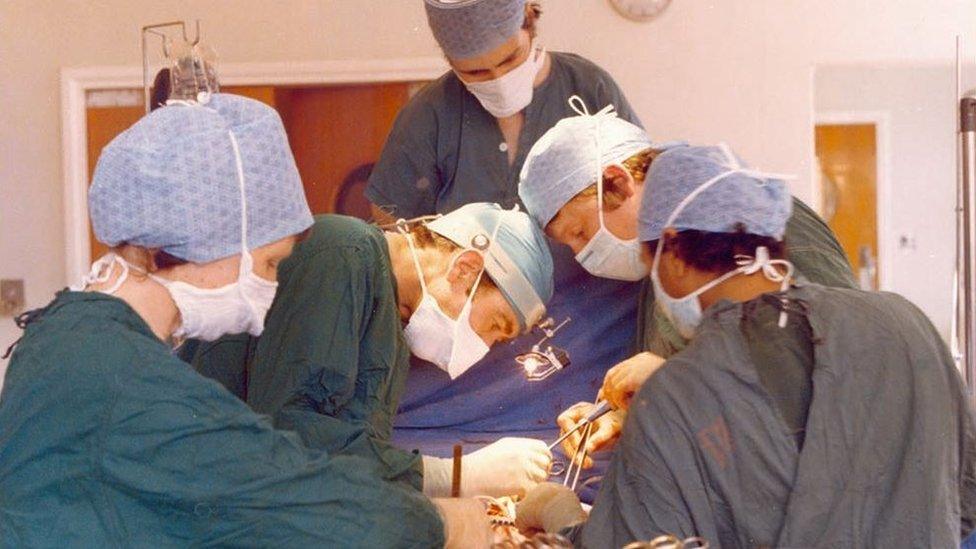
Two days after the operation Davina Thompson woke up and was able to speak to medics
Mrs Thompson, from Rotherham, was dying from lung and liver disease.
Without radical surgery her chances of surviving more than a few months were slim, and her quality of life would have been "dreadful", Prof Calne says.
What he and fellow surgeon Prof John Wallwork planned to do had never been tried before.
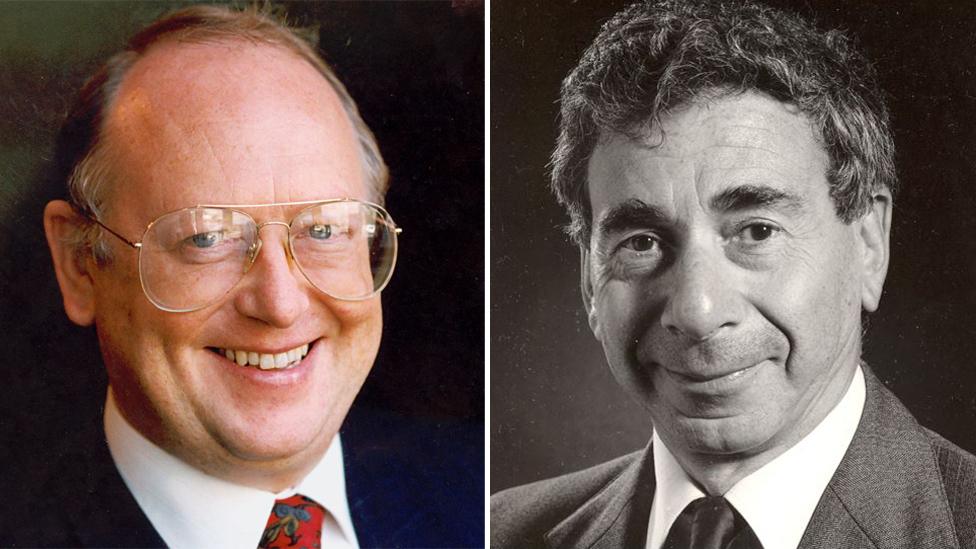
John Wallwork (left) and Roy Calne are disarmingly modest about their momentous contribution to medicine
At 01:00 GMT, a team of 15 medics gathered in the operating theatre of the NHS's specialist heart and lung hospital, Papworth, in Cambridgeshire.
The surgery took about 12 hours and was led by the two professors.
Prof Wallwork, based at Papworth, had performed Europe's first successful heart-lung transplant two years before, while Prof Calne, an Addenbrooke's Hospital-based surgeon, had carried out the first liver transplant in Europe, in 1968.
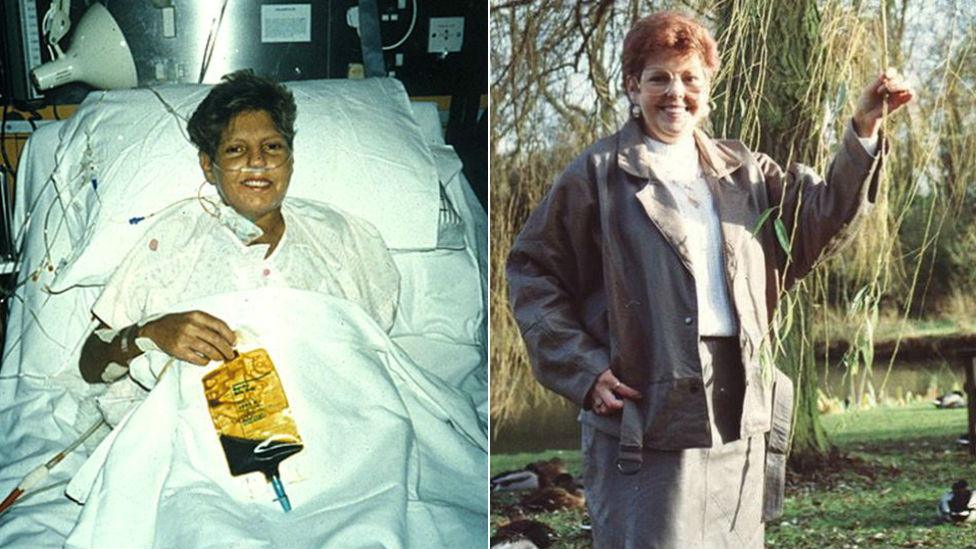
Davina Thompson returned to the hospital in 1996 to celebrate the 10th anniversary of her operation
Their teams had collaborated previously and, although a triple transplant was pioneering surgery, it was felt that "there was no overwhelming reason why it shouldn't work", Prof Calne recalls.
Mrs Thompson was "very courageous as she knew it hadn't been done before", he says.
"It was life or death for her, which she knew.
"She had a lot of go in her, and if she was able, she said she'd take the chance."
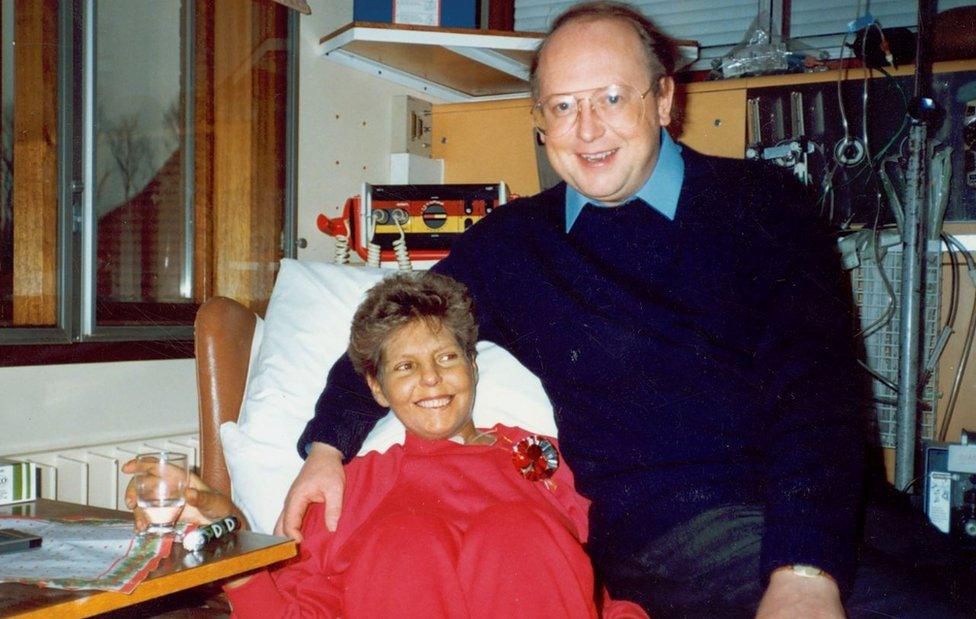
Mrs Thompson pictured with Prof Wallwork a few days after the operation
The operation was a success, and Prof Calne, now aged 85, says although it "captured the public's imagination" he does not recall much of a media "fanfare" at the time.
"Davina went back to being a housewife and led a very full life," he says.
But according to Babulal Sethia, president of the Royal Society of Medicine, what happened on the operating table that night was hugely significant.
"The first triple transplant of the heart, lungs and liver at Papworth Hospital in 1986 was an extraordinary achievement.
"For the first time, it offered hope to patients who were previously thought to be inoperable."
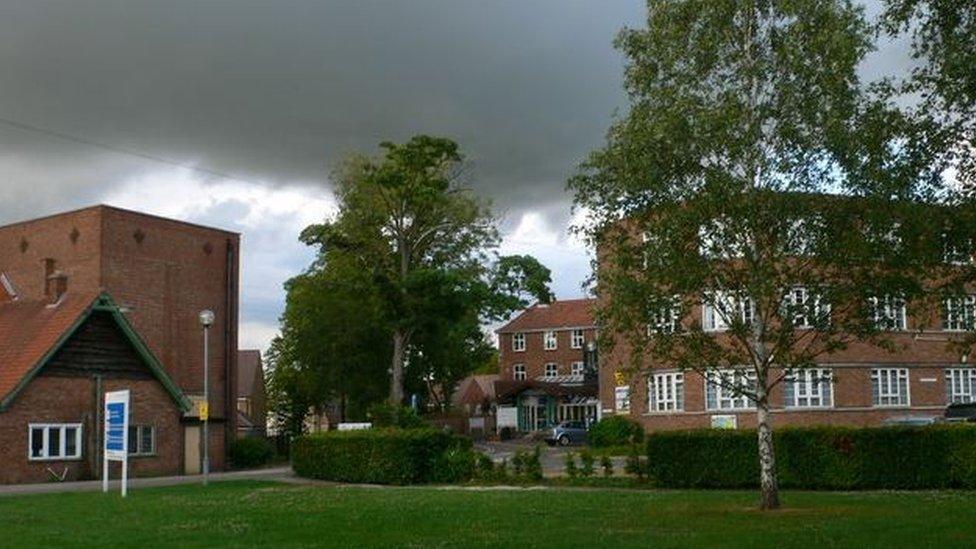
Surgeons at Papworth Hospital performed Europe's first non-beating heart transplant (DCD) in 2015 and followed that with a further 24 DCDs
Prof Derek Manas, president of the British Transplantation Society, goes even further in his praise for the pioneering surgeons.
He argues that the "amazing triple transplant... resulted in cultural acceptance, legal and political facilitation of organ donation and technical advances in organ preservation, transplant surgery, immunology, immunosuppression and management of end-stage organ diseases.
"As a professional community we owe them a huge debt of gratitude."
However, both Prof Wallwork and Prof Calne remain extremely modest about their achievements.
They were "just doing the job", says Prof Wallwork, now 70 and chairman of Papworth Hospital Trust.
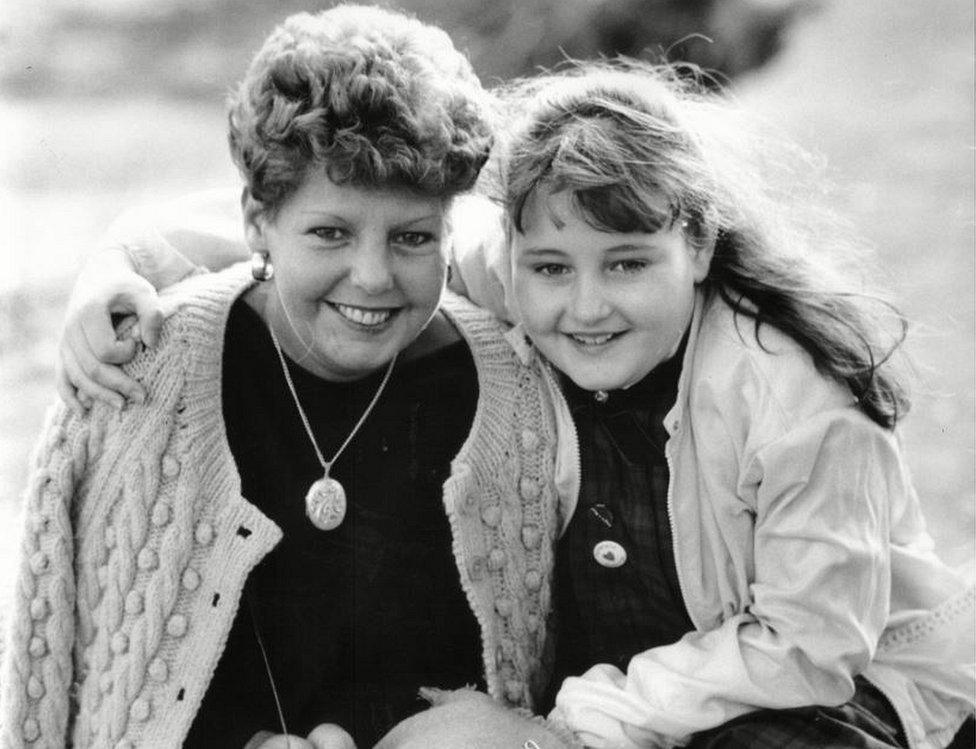
Mrs Thompson photographed two months after her operation with her daughter Stephanie
"I'm sorry to be so boring about it... but from the patient's point of view it has to be just the 'job', as if we were out there on a limb it would be not good for anybody.
"I think we knew we were doing something that nobody else had ever done, and indeed the next day I was in London and just sitting on the Tube and I thought: 'I have seen something that nobody else has ever seen'."
Prof Calne will go as far as to say their achievement "perhaps pushed the boat out for other multiple transplants, so in that way it was important".
Papworth Hospital has carried out 1,429 cardiac transplants and 1,020 lung transplants, but Mrs Thompson was the first of only 10 people to need triple transplants performed by its specialist surgeons.
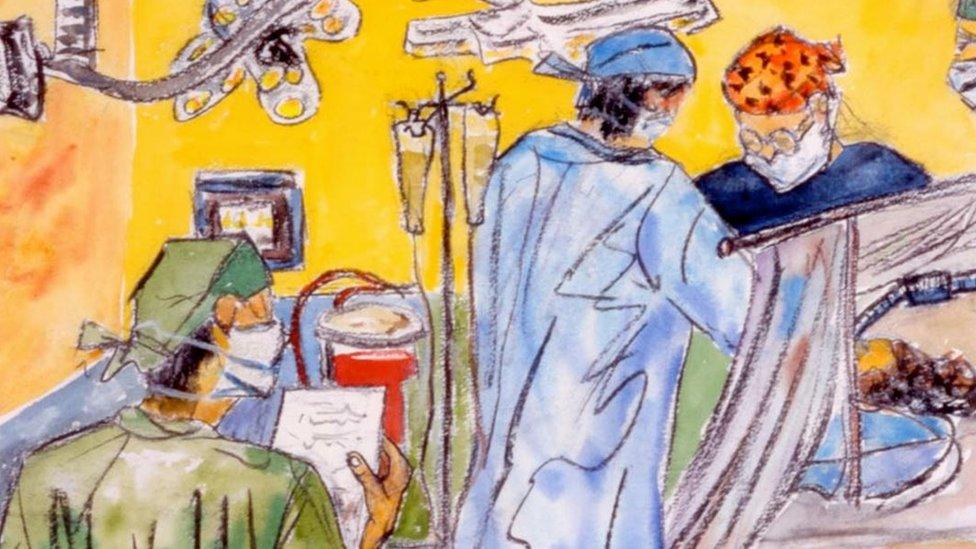
Prof Calne's painting of the operation hung in Addenbrooke's Hospital for years until it was stolen
Thirty years on they are still "pretty rare", Prof Wallwork says, as not that many patients need them.
"Nowadays, we tend to just do the lung and the liver or just the lung, but this patient had no alternative.
"We have to use our scarce resources wisely and you could argue that three patients could have been helped rather than one."
Mrs Thompson returned several times to Papworth, including to a party to mark the 10th anniversary of her surgery.
However, within two years of that celebration she was back for her final visit. She died there in August 1998 at the age of 47 from a lung infection.
Correction 19 March 2018: This article originally reported that Davina Thompson's healthy heart was donated to another transplant patient after her death, based on information from the NHS. The transplant team have since confirmed that this did not happen and this line has been removed from the story.
- Published17 December 2016
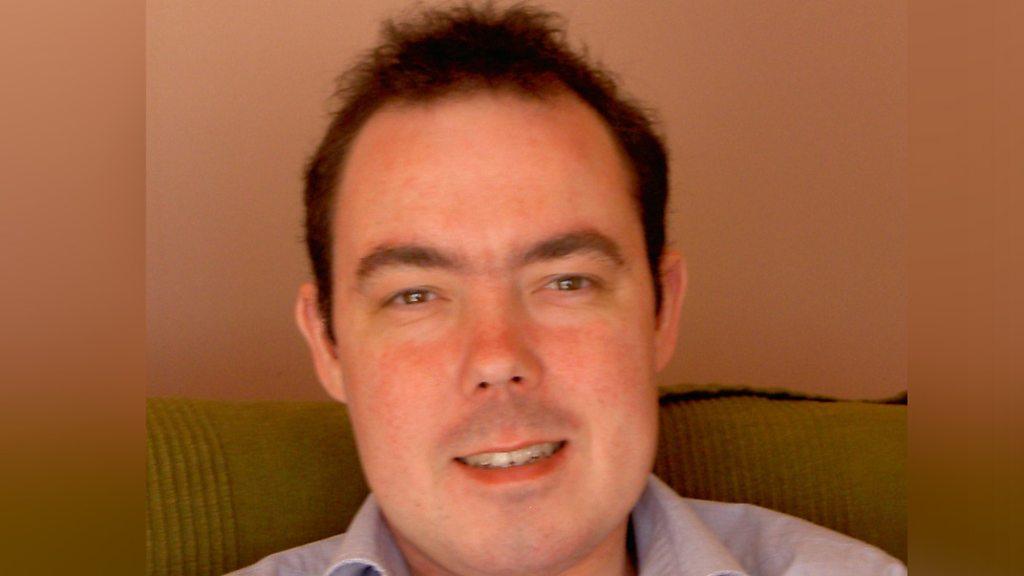
- Published1 June 2016
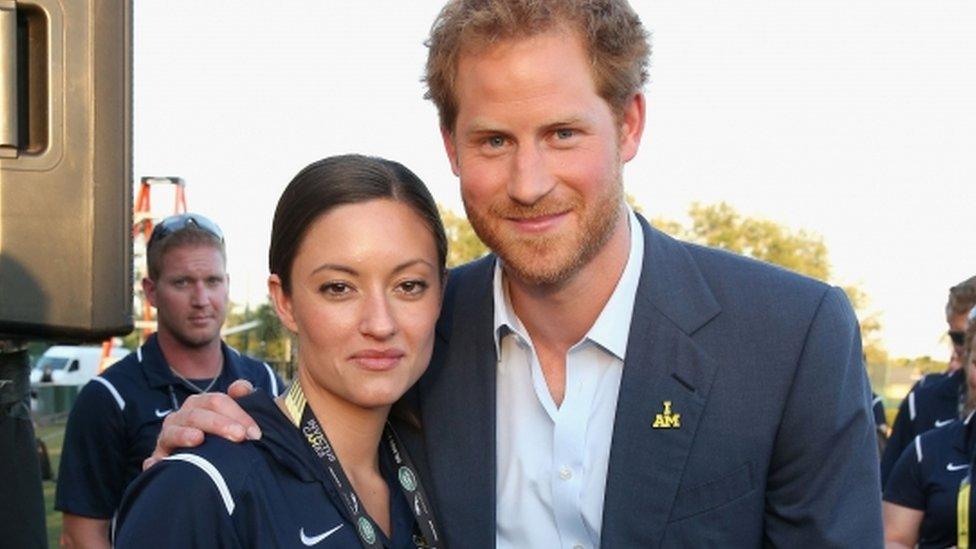
- Published13 March 2015
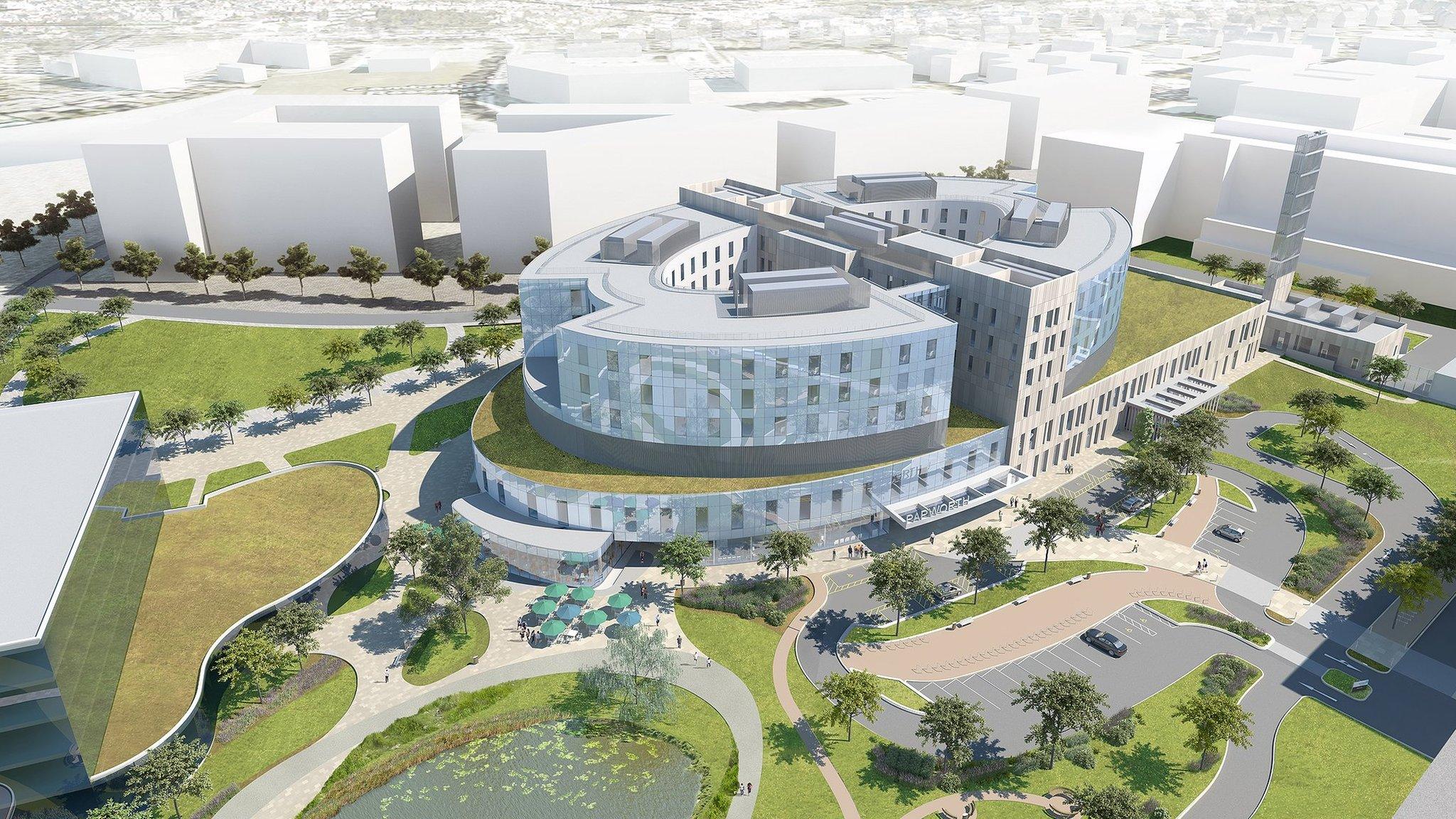
- Published26 March 2015